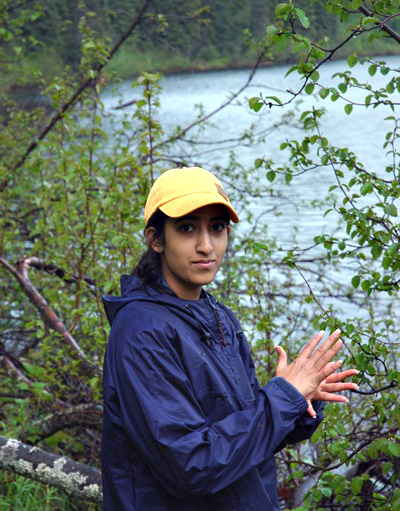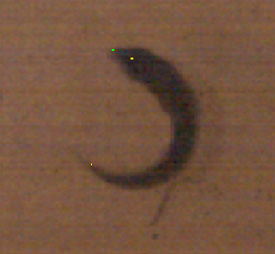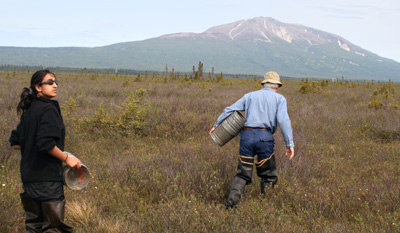Jignasha Rana

After successfully defending my master’s thesis at Clark, I moved down to Washington, DC to experience working in the non-profit world. Soon after arriving, I began work as a researcher for the Earth Policy Institute, a small non-profit think tank that researches global trends related to sustainability. I helped monitor a number of news feeds for information pertaining to energy, environment, population, and domestic and international policy among other topics. In addition, I helped follow scientific literature and review and fact-check various EPI manuscripts including Plan B 4.0: Mobilizing to Save Civilization, the fourth iteration of Lester Brown’s influential series on climate change and sustainability.
Life in DC is different from Worcester but nice, especially with the recent change in administration! Being in the District for the historic election of President Barack Obama was a great experience (including standing out in the bitter cold for hours at his inauguration, and attending an environmental ball that was soon to follow!). It was particularly exciting to partake in the celebrations right here in the nation’s capitol!
Longing to return to academia, I am applying to Ph.D. programs in conservation biology. I have applied to various schools across the country and am eager to learn where I will be headed! In my free time, I volunteer with an animal rescue group, Homeward Trails Animal Rescue, blogging about special needs animals, helping with adoptions, and contributing to outreach.
Jignasha Rana, 5th-year Masters
 Finding my interest was not difficult, given my love-at-first-sight fascination with the fields of evolution and animal behavior: a love that I discovered in introductory biology. I became involved in Susan and John’s laboratory through my introductory biology TA, their graduate student, Rich King. That summer after my freshman year I helped a graduate student, Melissa Scotti, with her research on stickleback endocrinology. The summer after my sophomore year, I had the opportunity to travel to Alaska with REU support from the National Science Foundation. There I helped with field sample collections at the various lakes and with collection of behavioral data. Over the last two summers I had again traveled to Alaska where I conducted research for my senior honor’s thesis and now my master’s thesis.
Finding my interest was not difficult, given my love-at-first-sight fascination with the fields of evolution and animal behavior: a love that I discovered in introductory biology. I became involved in Susan and John’s laboratory through my introductory biology TA, their graduate student, Rich King. That summer after my freshman year I helped a graduate student, Melissa Scotti, with her research on stickleback endocrinology. The summer after my sophomore year, I had the opportunity to travel to Alaska with REU support from the National Science Foundation. There I helped with field sample collections at the various lakes and with collection of behavioral data. Over the last two summers I had again traveled to Alaska where I conducted research for my senior honor’s thesis and now my master’s thesis.
My particular research interests fall into the categories of antipredator behavior, behavioral lateralization, and conservation. I study an anti-predator response called the fast start in the threespine stickleback, Gasterosteus aculeatus. Fast start behavior is a reflex response that allows fish to move very quickly when a threat is detected. Pressure waves sensed by the lateral line system can trigger this response which involves an initial C-shaped bend, and hence can be a left or right “handed” response to a stimulus. In some species this response can be biased in one direction, an occurrence that could reflect cerebral laterality. Since this is a response to threat of predation, it is also possible that the extent of laterality in the response could be influenced by the abundance of predators in the habitat. Therefore, I am comparing the direction of the C-bend, and resultant acceleration in threespine stickleback from populations with native piscine predators, populations that have not been exposed to piscine predators since the end of the last ice age approximately 20,000 years ago (called relax-selected), and populations that have had reintroduced piscine predators within the last 20 years (called reverse-selected).
The research opportunities at Clark have made it possible for me to explore a field of study that I had never imagined pursuing. Although I was fascinated with the natural world, I had not initially pursued biology and intended to study government and psychology. The government courses that I’ve taken as an undergraduate have helped me expand my depth of thought and realize the direction that I would like to follow. Through engaging courses in global underdevelopment and seminars in U.S. foreign policy, I’ve learned about the function and atmosphere of both the global and domestic political arenas. I’ve learned the importance of scientific communication and of creating an interface between science and policy, and more importantly between scientists and the public. Creating this common knowledge is essential to protecting the natural world around us. Taken altogether, my experience at Clark has helped me to focus my ultimate goals of doing research aimed at influencing sustainable environmental and conservation policy.
Award:
Research Experiences for Undergraduates (National Science Foundation) Award, 2005.
